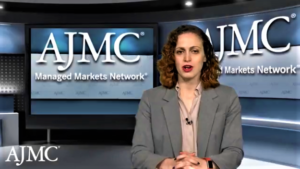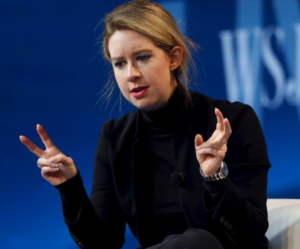- Insurers will study blockchain to fix their provider lists (cnbc.com)
As a patient, finding a doctor in-network on your health plan can make a big difference when it comes to out of pocket costs. For insurers and the doctors they contract with, finding a better way to keep provider lists up to date, could make a big difference when it comes to administrative costs...The administrative costs of updating and tracking down that information are estimated to be more than $2 billion dollars a year for the health-care industry...in 2016 federal health officials found that nearly half of provider listings for Medicare Advantage plans were inaccurate, with incorrect provider addresses and phone numbers...Now, UnitedHealth Group and its Medicare rival Humana are launching a pilot program together to study whether blockchain technology, with its system of decentralized ledgers, can help fix the problem...Regulators at...the Centers for Medicare and Medicaid Services, may start fining Medicare insurers up to $25,000 a day for inaccurate provider lists, so it's a problem the industry is anxious to resolve for their doctors, their patients and their bottom lines...
- Pharmacy Week in Review: March 30, 2018 (pharmacytimes.com)
Nicole Crisano, PTNN. This weekly video program provides our readers with an in-depth review of the latest news, product approvals, FDA rulings and more.
- This Week in Managed Care: March 23, 2018 (ajmc.com)
Laura Joszt, Managing Editor at The American Journal of Managed Care. Welcome to This Week in Managed Care from the Managed Markets News Network
- The SEC Says Elizabeth Holmes’ Fraud Was Worse Than Anyone Thought (forbes.com)
Elizabeth Holmes was an even smoother scamster than anyone thought -- and she's apparently getting to keep her job...The SEC just charged the 34-year-old onetime billionaire with fraud related to claims she made about her blood-testing company, Theranos. To settle the charges, Holmes is giving up 18.9 million Theranos shares, losing voting control of the company, paying a $500,000 fine and will be barred from running a public company for ten years. She will, however, continue as the chief executive of Theranos, which under the fraudulent scheme described by the SEC raised $700 million...What emerges from the SEC's complaint is this: ...that Theranos’ sales were much lower than the company had led outsiders to believe. But the SEC puts a fine point on it: At a time when Theranos claimed it had annual sales of $100 million, sales were just $100,000...SEC says Holmes showed...(Walgreens) executives written evidence that Theranos would be able to run just about any blood test on its machines by the end of that year, using drops of blood taken from finger pricks instead of using needles. The next year, the pharmacy executives raised concerns with Holmes that this device might need to be approved by the FDA. But they missed the scale of her deception...Theranos miniLab was supposed to have been rolled out...the machine wasn't ready at all. That's when, (Sunny Balwani) Balwani and Holmes told their engineers to start using other companies' machines in unapproved ways to analyze finger-prick samples, the complaint says. Theranos allegedly never told the pharmacy executives...
- Washoe County releases chronic disease report card (kolotv.com)2018 Washoe County Chronic Disease Report Card A Summary Report of Chronic Health Conditions and Primary Risk Factors (washoecounty.us)
The Washoe County Health District has released the “2018 Washoe County Chronic Disease Report Card,” the most current and available information about chronic disease and their risk factors for Washoe County...“The intent of this report is to provide a summary of chronic diseases and their risk factors in Washoe County and to serve as a source of currently-available chronic disease data. It is also intended to provide local health care providers, chronic disease practitioners, and other interested persons and programs with data they may use in their work to improve the health of Washoe County,” says District Health Officer Kevin Dick...
- Israel to launch Big Data health project (reuters.com)
Israel will invest nearly 1 billion shekels ($287 million) in a project to make data about the state of health of its population available to researchers and private companies, Prime Minister Benjamin Netanyahu said...Almost all of Israel’s nine million citizens belong to four health maintenance organizations who keep members’ records digitally, thus comprising a huge medical database...This is a major asset and we want to make it accessible to researchers and developers in order to achieve two things: one is preventive medicine, and the second is personal medicine tailored to each individual...Nadav Davidovitch, head of the Public Health School at Ben Gurion University in southern Israel, said the country’s push to harness big data for healthcare had huge potential, but also held risks in terms of privacy and medical confidentiality...private companies would profit by using a publicly-funded database while continuing to make some medication unaffordable to many patients...mechanisms would be put in place to keep information anonymous while protecting privacy, information security and restricting access as part of the government project...Patients will be able to refuse the use of their information for research...
- Pharmacy Week in Review: March 23, 2018 (pharmacytimes.com)
Kristi Rosa, PTNN. This weekly video program provides our readers with an in-depth review of the latest news, product approvals, FDA rulings and more.
- This Week in Managed Care: March 30, 2018 (ajmc.com)
Laura Joszt, Managing Editor at The American Journal of Managed Care. Welcome to This Week in Managed Care from the Managed Markets News Network
- Blockchain for pharma: DHL, Imperial and Authentag embrace ledger tech (in-pharmatechnologist.com)
Three contract services firms have launched separate Blockchain-based initiatives, in a bid to increase pharmaceutical supply chain security...Blockchain – a digital ledger technology which records data in a secure, chronological way – has attracted attention in the pharmaceutical industry, as US and European serialisation deadlines approach...logistics firm DHL announced a collaboration with technology provider Accenture, to team serialization services with product verification, using a Blockchain ledger platform...The firms have created a ‘prototype simulation’ service, in order to track and trace pharmaceutical products throughout the entire supply chain...By sharing databases between multiple parties, Blockchain essentially removes the need for intermediaries who were previously required to act as trusted third parties to verify, record and coordinate transactions...Authentag announced its Blockchain-based Distributed Ledger Technology project...Our latest platforms will provide an open source architecture to allow members of the pharmaceutical community to develop their own solutions, improving the safety and security of pharmaceutical products...
- The biggest innovators in health care, according to Fast Company (advisory.com)
Fast Company has released its 2018 edition of its "World's Most Innovative Companies" list, which recognizes more than 350 enterprises, including dozens involved in health care...The latest list covers 36 categories and recognizes the 10 most innovative companies in each category, with an overall list of the top 50 most innovative companies curated from the category-specific lists. To compile the lists, more than three dozen Fast Company "editors, reporters, and contributors surveyed thousands of companies" to "identify the most notable innovations of the year, and trace their impact on businesses, industries, and the larger culture."
- In the publication's health care-specific category, the 10 most innovative companies are:
CVS Health
23andMe
Color
Veritas Genetics
Helix
Maven Clinic
Qventus
Glooko
Emocha Mobile Health
Dosist
- In the biotech category, the 10 most innovative companies are:
Novartis
OneOme
GE Healthcare
Syapse
Sophia Genetics
Spark Therapeutics
Biogen
Synthego
WuXi NextCo
Ginkgo Bioworks
- In the publication's health care-specific category, the 10 most innovative companies are:










